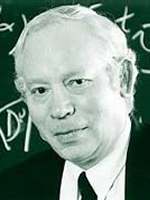Commentary
I am pleased that the article Tactical Nuclear Weapons in Southeast Asia has at last been declassified. The title and authorship of this article became public knowledge soon after it was first distributed, and gave some people the impression that the JASON group of defense consultants had played a more sinister role in the Vietnam war than in fact was the case. As long as the article was classified, I could not explain what was in it, or how it came to be written.
The JASON group was divided in its reaction to the Vietnam war. Some members looked at it as a purely military problem, to which the expertise of JASON members might make a useful contribution. Some thought of it as nasty business, which could best be ended by winning the war. Others simply wanted nothing to do with it. I was in the last group.
During one of the JASON summer studies[1], we heard a rumor that someone in the Pentagon or White House was pushing for the use of tactical nuclear weapons in Vietnam or Laos. Some of us were appalled by the idea. I, and I believe others as well, felt that the use of nuclear weapons would make the war even more destructive than it had already become; it would create a terrible precedent for the use of nuclear weapons for something other than deterrence; it wouldn’t help much with the war; and it would open up the possibility of nuclear attacks on our own bases in Vietnam. All this was an immediate reaction, not based on any careful analysis. So we decided to do the analysis, and write a report.
It was clear from the beginning that the report should not go into ethical issues. For us to raise such issues would cast doubt on the impartiality of our analysis. Anyway, whoever read our report would doubtless feel that he was as capable as we were at making ethical judgments. So the report concentrated on purely military issues. As can now be read in the report, we concluded that the Vietnam war did not offer plausible targets for nuclear weapons, and that our forces were far more vulnerable to the use of nuclear weapons than our adversaries. The analysis was honestly done, but I have to admit that its conclusions were pretty much what we expected from the beginning, and if I had not expected to reach these conclusions then, for the ethical reasons that we left out of the report I would not have helped to write it.
I never learned whether our report had any effect. In fact, I never learned whether there had ever been a serious idea of using nuclear weapons in Southeast Asia. At least they were not used, and have not been used since then.
It is important for the survival of civilization that nuclear weapons should never again be actively used. Fortunately, since Hiroshima and Nagasaki there has grown up a taboo against the use of nuclear weapons for anything but deterrence, at least on the part of established governments. There have been some signs recently of a weakening of this taboo, in talk of the development of low-yield weapons for attacking underground facilities, and even in suggestions of a revival of interest in nuclear-armed anti-missile interceptors. Let’s hope that this will go no further than did the idea of using nuclear weapons in the war in Southeast Asia.
[1] I had thought that this was in the 1967 summer study, but the date March 1967 on the cover of the report suggests that it must have been in the summer of 1966.

Contact |
BiographySteven Weinberg was educated at Cornell, Copenhagen, and Princeton, and taught at Columbia, Berkeley, M.I.T., and Harvard, where from 1973 to 1982 he was Higgins Professor of Physics. In 1982 he moved to The University of Texas at Austin and founded its Theory Group. At Texas he holds the Josey Regental Chair of Science and is a member of the Physics and Astronomy Departments. His research has spanned a broad range of topics in quantum field theory, elementary particle physics, and cosmology, and has been honored with numerous awards, including the Nobel Prize in Physics, the National Medal of Science, the Heinemann Prize in Mathematical Physics, the Cresson Medal of the Franklin Institute, the Madison Medal of Princeton University, and the Oppenheimer Prize. He also holds honorary doctoral degrees from thirteen universities. He is a member of the National Academy of Science, the Royal Society of London, the American Academy of Arts and Sciences, the International Astronomical Union, and the American Philosophical Society. In addition to the well-known treatises, Gravitation and Cosmology and (in three volumes) The Quantum Theory of Fields, he has written several books for general readers, including the prize-winning The First Three Minutes (now translated into 22 foreign languages), The Discovery of Subatomic Particles, Dreams of a Final Theory, and, most recently, Facing Up — Science and its Cultural Adversaries. |

